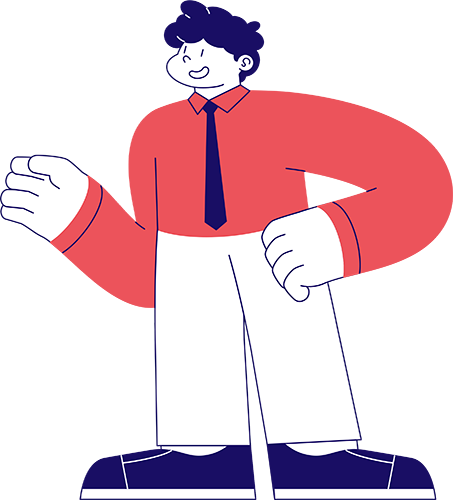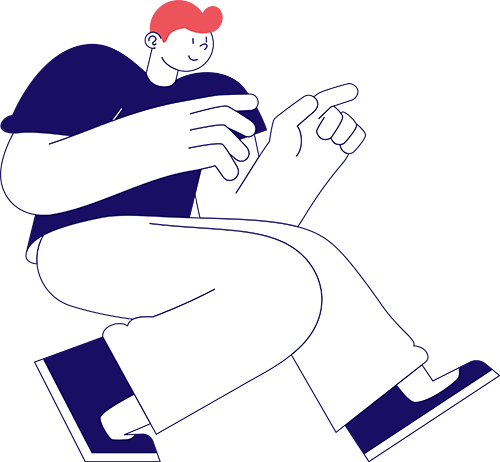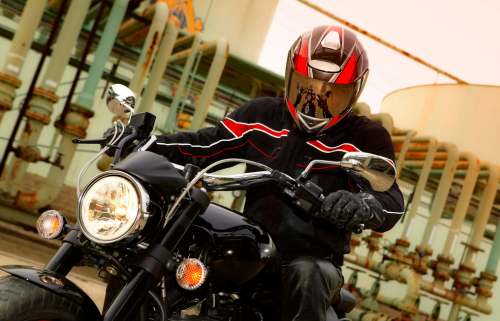THE RIGHT WAY TO PREPARE
Pass the ICBC Motorcycle Knowledge Test: Your Complete Guide
 So you’re eyeing that motorcycle license and the ICBC knowledge test is the gatekeeper. It’s not just about memorizing rules; it’s understanding them, feeling confident on test day, and steering clear of common study traps.
So you’re eyeing that motorcycle license and the ICBC knowledge test is the gatekeeper. It’s not just about memorizing rules; it’s understanding them, feeling confident on test day, and steering clear of common study traps.
We’ve got your back with a rundown of what to expect from the test, smart study strategies, and tips for keeping those nerves in check when it counts. You’ll also learn how hitting the road can boost your book smarts.
We make sure this ride succeeds by tracking your progress and knowing when you’re truly ready to ace that exam. Let’s start that engine!
Understanding the ICBC Motorcycle Knowledge Test
Think of the ICBC motorcycle knowledge test as your first hill on a long, exhilarating ride. It’s where you prove you’ve got what it takes to handle the curves and challenges of British Columbia’s roads. The questions will grill you on road rules, signs, and safe riding practices—all crucial for keeping the rubber side down.
The format? Multiple choice—just like choosing your path at a crossroads. But don’t be fooled; while some answers might look similar, there’s only one that’ll keep you from wiping out on this part of your biker journey.
Tackling Traffic Rules
You’ll face questions about how to share lanes with grace—not just because it keeps tempers cool but because knowing when and how to split lanes can save skins (yours included). This isn’t bumper cars; we’re talking real steel here.
Riding alongside giant metal beasts requires brains over brawn—and an intimate understanding of traffic laws is non-negotiable if you want to stay shiny side up.
Navigating Road Signs
Road signs are like secret codes for riders—if you crack them, they’ll guide you safely through urban jungles and winding mountain passes. Each question related to these roadside hieroglyphs aims to ensure your translation skills are top-notch so that no sign goes misread under your watchful eye.
A wrong interpretation could mean more than a detour—it could land someone in bandages or worse. So get cozy with those symbols; they’re lifesavers disguised in plain sight.
Safe Riding Practices Make Perfect
Last but not least: safety smarts—the bread and butter of any rider worth their leathers. You must know how much space makes for a safe bubble around your bike because tailgating isn’t just rude—it’s downright deadly on two wheels.
This section also covers gear head-to-toe because asphalt doesn’t care about tough looks—it wants skin unless properly suited. Remember, folks: dress for the slide, not just the ride.
So buckle down with ICBC’s resources, hit those practice tests hard—free after all—and turn yourself into a rolling encyclopedia of biking wisdom before test day.
Essential Study Materials for the ICBC Motorcycle Test
Are you getting ready to ace the ICBC motorcycle knowledge test? You’ll need more than just luck on your side. The right study materials are like a road map—they can guide you through the twists and turns of test prep without any unexpected detours.
The Official ICBC Rider's Guide
Your First Companion
Buckle up, future bikers—your journey starts with the official ICBC rider’s guide. This gem is packed with everything from traffic laws to riding tips. Think of it as your trusty co-pilot who doesn’t nag about your driving skills but offers solid advice to keep you safe and knowledgeable.
But don’t stop there. To truly get in gear, dive deep into each chapter. Take notes if that’s your jam, or make flashcards—it’s all about finding what clicks for you.
Practice Makes Perfect
Embracing Free Tests Online
You wouldn’t hit a gnarly bike trail without warming up first, right? The same goes for this test. Flex those brain muscles with free practice tests online—they mimic the real deal so well, it’s like having a cheat sheet… but legit. Check out resources like DrivingTest Canada’s practice quizzes, where clicking ‘submit’ feels less scary each time.
Acing Through Active Learning Techniques
Before You Hit The Books or Brakes
Last tip—keep things interesting. Swap study spots or team up with fellow riders-to-be because, let’s face it, studying alone can be as dull as watching paint dry on wet asphalt. Discussing tricky concepts could help everyone grasp them better than going solo.
Mixing different techniques will keep boredom at bay and give you an edge when tackling various question types on D-day (that stands for ‘Drive’ day).
Leveraging Free Motorcycle Practice Tests
You’re sitting on a sturdy bike, the breeze against your face, ready to conquer the roads—but hold up. Before reviving that engine in Canada, the ICBC motorcycle knowledge test awaits you. Now, here’s where free practice tests come into play. They are like those trusty sidekicks in superhero movies—always there to help you prepare for the big showdown.
So why exactly should these practice exams be part of your prep toolkit? For starters, they mirror what it feels like to tackle real questions under timed conditions. ICBC’s website offers a glimpse of what you can expect, but digging into actual free practice tests will let you experience firsthand how tricky some scenarios can get.
Now, don’t just take my word for it; as someone who has walked down that nerve-wracking path myself and emerged with keys jingling triumphantly—I know one thing for sure: practicing beforehand is key (pun intended). It lets us rookies become familiar with traffic rules specific to motorcyclists while highlighting areas where we might need more brush-up sessions.
Finding Quality Practice Exams
Plenty of online resources claim they've got "the best" practice tests around. Not all heroes wear capes—and not all websites offer high-quality questions that reflect what’s coming on test day. A good starting point is checking out resources recommended by seasoned riders or ones provided by recognized organizations such as Motorcycle Training Organization. These often have been vetted through many helmets over time.
Better yet? Many sites track your progress so that you can see improvement over time—or spot patterns where maybe certain road signs seem like cryptic hieroglyphs begging for interpretation.The Real Deal with Simulations
A killer feature of these online warriors—the simulations—is their ability to throw curveballs similar to those dished out by ICBC examiners. Have you ever tried answering about emergency maneuvers while an imaginary clock ticks menacingly in your head? That’s pretty much game day without the added pressure of being watched by an eagle-eyed proctor."
So, take advantage of free motorcycle practice tests. They're precious for gearing up to tackle obstacles you'll face on the road.THE RIGHT CHOICE
Study Strategies for Aspiring Motorcyclists
You know the feeling of freedom of riding a motorcycle, but before you hit the road, a test stands between you and your permit. Let me give you some straight-up advice on how to nail it.
Create a Study Schedule That Rides With Your Lifestyle
We've all got lives outside of becoming two-wheeled legends. So make sure your study plan doesn't clash with your day-to-day hustle. Set aside regular times each week just like you would for hitting the gym or grabbing coffee with friends. Consistency is key; even 20 minutes daily can turbocharge your memory muscles more than cramming could ever dream of.
And hey, variety isn't just the spice of life—it keeps studying from being as dull as watching paint dry. Mix up reading materials and practice tests online (these ICBC samples are pure gold), and maybe throw in some flashcards if that's how you roll.
Analyze Mistakes Like You're Sherlock Holmes
Mistakes aren't just annoying—they're clues on what needs work. Don't shrug off wrong answers when tackling those practice tests I mentioned earlier (ICBC’s website has them by the bucketload). Dive deep into why they tripped you up and fix those knowledge gaps faster than a flat tire at a pit stop.
Sometimes, seeing things differently makes all... well, different. If textbook definitions sound like aliens speak to you, find analogies that resonate—like comparing balancing during slow maneuvers to not spilling your favorite brew while walking through a crowd.
Talk It Out Loud Even If It Makes You Look Crazy
Last pro tip? Talk through challenging concepts out loud—even if it earns weird looks from roommates or pets (trust me, dogs are great listeners). Verbalizing information cements it into our brains because it engages multiple senses at once—like learning to shift gears without looking down every time.
This method turns passive reading into an active discussion—and who knows? Maybe someone will overhear and offer their two cents—or better yet—a veteran biker's insight.
Tips for Test Day Success
Test day has finally arrived, and you’re ready to take the ICBC motorcycle knowledge test. But before you fire up that confidence engine, let’s ensure your mental gears are well-oiled with some last-minute tips.
Start Your Day Right
 A good morning routine can set the tone for a successful day. Get plenty of sleep the night before because tired eyes never did any biker favors on the road or in an exam room. Fuel up with a healthy breakfast; think brain food like oatmeal or eggs rather than sugary cereals that’ll have you crashing faster than a rookie on their first ride.
A good morning routine can set the tone for a successful day. Get plenty of sleep the night before because tired eyes never did any biker favors on the road or in an exam room. Fuel up with a healthy breakfast; think brain food like oatmeal or eggs rather than sugary cereals that’ll have you crashing faster than a rookie on their first ride.
If caffeine is your co-pilot, indulge, but remember that too much might make those nerves jitter more than necessary.
Create A Pre-Test Checklist
Gather everything you need beforehand so you aren’t scrambling at the last minute. Ensure your ID is in hand—without it, you won’t be going anywhere fast—and double-check any paperwork required by ICBC regulations. And hey, while we’re checking lists twice, give another glance over those practice tests one final time.
Breathe and Focus
Anxiety can sneak up quicker than a blind spot on Highway 1 if left unchecked. Take deep breaths; envision yourself mastering every question as effortlessly as cruising down an open road during sunset. Visualization isn’t just for athletes—it’s also key for bikers aiming to ace their knowledge test.
Remember now: stay calm and collected when faced with tricky questions; they’re not obstacles but opportunities to showcase what all those hours hitting the books (and free practice tests) were about.
In short? Eat well, pack smartly—the essentials only.—and keep cool under pressure today, so tomorrow’s ride includes that shiny new permit tucked in your wallet.
A SIMPLE, FUN WAY TO PREPARE
Common Pitfalls to Avoid While Studying
Studying for the ICBC motorcycle knowledge test is like preparing for a road trip. Having a map, some good tunes, and snacks would be best—but most importantly, you can’t get lost in detours.
Focusing Only on Memorization
Rote learning won’t cut when real-life riding scenarios hit you faster than an unexpected rain shower. Understanding concepts trumps memorizing them because when you’re on two wheels, it's about applying what you know, not just recalling facts.
To truly prep your brain muscle, mix up how you study. Switch between the ICBC rider’s guide and practice tests regularly—like alternating sprints with long rides to build stamina.Solo Riding Through Study Sessions
A lone wolf might enjoy the solitude of empty roads, but studying solo could mean missing out on new perspectives or tips from fellow learners. Joining online forums or local study groups gives insights that can light up your understanding, like high beams on a night.
Try explaining tricky concepts to someone else—it’ll reinforce your knowledge better than talking into the wind through your helmet intercom while cruising alone.Ignoring Test-Taking Strategies
You wouldn’t tackle tight turns without knowing proper counter-steering techniques; don't approach multiple-choice questions without strategy. For instance, practicing timed tests can help manage those ticking-clock jitters come exam day.
Analyze why each wrong answer was off-mark—not just why the right ones worked—to dodge potholes of misunderstanding before they throw you off balance during testing time.The Role of On-Road Experience in Preparing for the Knowledge Test
Think about it. You wouldn’t jump into a game without knowing the rules. The same goes for riding a motorcycle. Sure, you can memorize all the signals and signs from a book, but getting your hands on those handlebars teaches you stuff that’s just as crucial.
Riding on real roads gives you insight into what to expect – like how drivers behave or weather conditions affect your ride. It makes all that theory come alive. When you’re finally sitting down for the ICBC knowledge test, every question isn’t just words; they’re experiences flashing before your eyes.
Tactile Learning: Touching Theory with Practice
You've read about counter-steering and emergency braking techniques till blue in the face—but when do they click? Learning ramps up when these actions move from page to pavement. That's because doing trumps reading any day of the week. Every time you lean into a curve or throttle through traffic, it’s prep work for acing that test.
Besides understanding maneuvers better by performing them yourself—on-road experience lets you develop something priceless: instincts. This 'sixth sense' could separate passing from failing when faced with split-second decisions during exams—or, more importantly—out in the wild asphalt jungle.
Building Confidence Behind Bars (Handlebars)
Nervousness can mess up even seasoned riders during tests—imagine its impact if this is all new territory. But hey, if you’ve already logged hours feeling vibrations beneath your boots and winds against your chest—you’ll strut into that testing center cooler than cucumber slices at a spa day.
This confidence doesn’t sprout overnight, though; it takes saddle time—and plenty of it—to feel sure enough to tackle anything testers throw at you'. Plus let’s not forget: self-assurance oozes onto answer sheets too—it might help bump up those scores slightly.
Merging Knowledge With Know-How
All said and done—nothing beats combining know-how with actual road-knowing. Each left turn taken educates beyond written word limitations...each honk heard weaves itself seamlessly within study sessions...
Getting ready (and steady) on two wheels gifts learners an edge so sharp—you’d need caution stickers handling their exam papers post-study session rides.
Tracking Your Progress and Evaluating Readiness
You’ve been hitting the books hard, soaking up every nugget of wisdom from your study materials. But how do you know when you’re ready to take on the ICBC motorcycle knowledge test? Simple – track your progress like a hawk eyeing its prey.
Self-Assessment Tools: Are You Test-Ready?
 Feeling confident is great, but backing that confidence with cold, hard data? That’s better. Use self-assessment tools to measure where you stand. Online quizzes can give you a quick snapshot of your strengths and areas for improvement. And remember, scoring well consistently means you’re probably ready to rock that test.
Feeling confident is great, but backing that confidence with cold, hard data? That’s better. Use self-assessment tools to measure where you stand. Online quizzes can give you a quick snapshot of your strengths and areas for improvement. And remember, scoring well consistently means you’re probably ready to rock that test.
If those practice tests are tripping you up more often than not, it might be time to double down on studying before setting a date with destiny – or, in this case, the ICBC examiners.
Realistic Goals: Setting Them Right
We all want to believe we can go from zero to hero overnight, but let’s get real; even superheroes had training montages. Set weekly goals for mastering different sections of the material. This approach makes things manageable and less overwhelming than cramming everything into one epic study session.
Aim high but keep it achievable – biting off more than you can chew only leads to indigestion…of information.
Tweaking Study Habits Based on Practice Tests Performance
Did you run into some rough patches during practice exams? It happens even if nobody likes talking about their ‘oops’ moments at parties (trust me). The key is using those results as feedback loops — after all, each mistake is an opportunity to dress in work clothes.
Mix up your study routine based on what those pesky wrong answers tell you. Maybe flashcards will help drill in traffic rules, or group discussions could clear out confusion over road signs faster than clearing the fog from sunglasses while riding through Vancouver’s morning mist.
